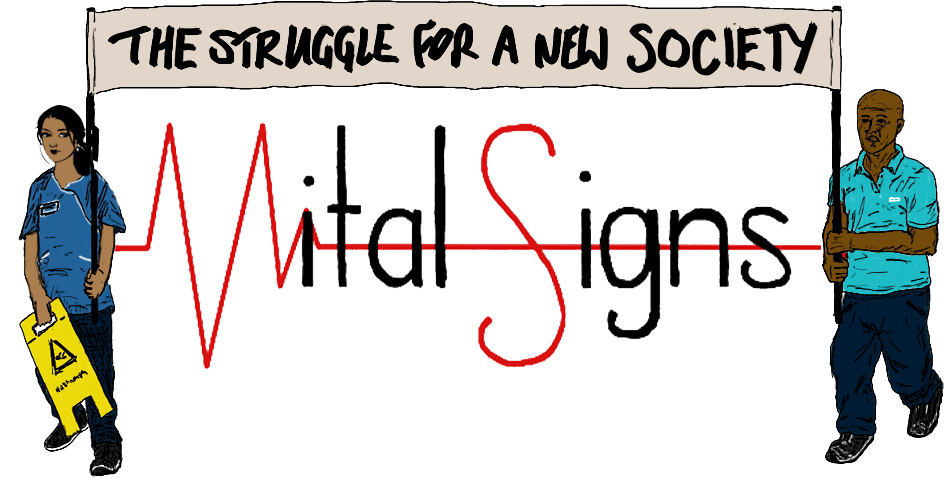A short report about a current dispute at one of the two main hospitals in Bristol. A papercopy of the report will be distributed as part of Vital Signs no.3. Share your views and experiences!
Fellow workers in theatres have been unhappy for a while. In April 2024, management announced that the enhancements for working additional ‘waiting-list shifts’ will be cut from double-rate to 30%. In June 2024, management cut the 30% enhancement and said it would only pay the bank rate. A group of workers filed a collective grievance, claiming that additional overtime shifts should be paid at least x1.5. The response to the grievance was arbitrary: management has the right to offer bank-shifts, employees are entitled to demand that these shifts should be paid as overtime. The result is that less people work extra-shifts and understaffing increases. Every week there are emails or text-messages from managers asking if any scrubs want to come in on their days off and work some more.
As if the cuts of enhancements wouldn’t be enough, management decided to outsource theatres to private third-party providers on weekends, such as KPI Health. The private companies pay money to the Trust and some of them bring in their own scrub nurses and health care assistants. These companies then operate on waiting-list patients and get the money back from the NHS – plus a good profit for their own pockets. The NHS theatre workers have not been consulted and they have not been asked whether they themselves would like to work the weekend shifts. A group of 50 workers signed a protest letter against the outsourcing. Workers also asked the Joint Union Committee whether the unions had agreed to the outsourcing – the answer they received from the unions was: yes, we agreed, because the theatres are not used on weekends and it means that the Trust can earn money. The union leaders decided this without even asking the theatre workers!
The upper ranks of management then invited workers to a meeting, where they ‘explained’ why the outsourcing was necessary. These ‘explanations’ were highly contradictory. On one hand they said that theatres are now ‘fully staffed’ and that therefore any enhancements to work extra-shifts have been cut. On the other side they have to resort to outsourcing due to a ‘lack of Trust internal capacity’. There was no answer how there can be a ‘lack of capacity’, if theatres are allegedly ‘fully staffed’. There was also no response to the question why NHS theatre staff have not been consulted over the outsourcing or offered the weekend-shifts first.
The outsourcing takes place on the background of a ‘financial crisis’ of the Trust. Management wants to show that there is income coming in, in order to defend their jobs – even if the private companies that pay the Trust later on fleece the NHS to make a handsome profit. In 2024, the Department of Health paid private companies £12.357 billion to treat NHS patients, which is a 12 per cent increase over the previous year. The picture becomes even more complex if we take into account certain rumours, e.g. that the Trust uses private labour agencies that provide theatre staff that are owned by surgeons who are formally employed by the Trust. These rumours would be easy to verify or disqualify, if the Trust would provide the names of all private companies that use the NHS theatres. Unfortunately management seems very reluctant to provide these names.
The question is what theatre staff can do after having filed a collective grievance and sent a protest letter signed by many colleagues. It is clear that theatres would stop working smoothly if people stopped working extra bank-shifts – which they are absolutely within their rights to do. It is also clear that theatres would stop working smoothly if people would stop using their private phones and WhatsApp at work to coordinate multiple tasks within theatres – again, something that is within their rights to do. Even if that happened for only a week or two, it would send a clearer message to management than a hundred letters. This message would be even louder if some of the surgeons would support their fellow lower-paid NHS workers. This is not a personal dispute. Management has undermined pay and conditions for NHS workers, resulting in an increase of fluctuations and understaffing, which impedes a smooth running of the theatres. In the next issue of Vital Signs we will look at the bigger picture of NHS waiting lists and the private sector. Comments are always welcome!




